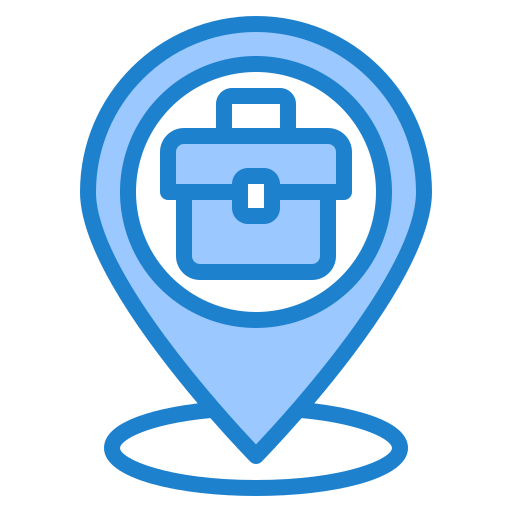Can I Move to Canada with a Remote Job?
Since the pandemic started in 2020, many professionals have worked remotely, and some even found that they managed their time better while working at home. While hybrid jobs may come with inevitable distractions at home, you can find compatible employment opportunities that accommodate your needs and personal circumstances.
The labour market has been on the rise in various occupations, maximizing the chances of landing a remote job in Canada. Many Canadian companies realized that the nature of specific occupations enables employers to work in the comfort of their own homes with flexible working hours.
Employees also can expand their hiring potential to exceptionally skilled workers abroad.
This approach has led to overall employee satisfaction and increased retention rates, making remote working the new business model for many Canadian companies.
So, the question remains: Can I immigrate to Canada with a remote job?
Let’s take a closer look at your options and how they will influence your immigration journey.
Uncertain if working remotely is a good idea? Then let’s explore some of the benefits of the reasons that explain why working remotely is the ideal scenario for you.
Why Immigrate to Work Remotely in Canada
Avoid long commutes
While the Canadian transportation system is effective, you can save yourself the extra time and energy of lengthy commute times.
There are no geographic constraints
Remote work can help you expand your geographical reach if you need help finding a well-paying or meaningful job in your sector. You may also be allowed to work for a company in another province or territory without relocating and uprooting your entire life.
You won’t have to break the bank
Remote jobs allow you to save on gas, auto maintenance, transportation, parking fees, a professional wardrobe, bought-out lunches, and other expenses to save money and cut unnecessary costs.
How to Immigrate to Canada with a Remote Job
If you want to live and work in Canada as a temporary foreign worker, you may require a Labour Market Impact Assessment (LMIA), even if it’s hybrid employment.
The Great White North offers an abundance of remote job opportunities, and even better, if you are looking to immigrate to Canada and work remotely from there, you may be at an advantage since you’d be directly exposed to Canadian work life and culture.
Let’s dive into the nitty gritty details of how you can immigrate to Canada and work remotely.
Step 1: Decide if you want to Live and Work in Canada
Immigrating to Canada without a job offer
If you plan on living in Canada while working remotely, then you should know that there are immigration pathways that don’t require you to have a job lined up in Canada. Some of these programs are:
- Federal Skilled Worker
- Federal Skilled Trades
- Canadian Experience Class
- Provincial Nominee Programs
- The Family Class
- Entrepreneur programs
If the program falls under the Express Entry system, the ideal scenario would be to have a job offer in Canada.
This factor can increase your Comprehensive Ranking System (CRS) points, enabling you to gain permanent residence in Canada.
Candidates will receive an Invitation to Apply (ITA) for permanent residency based on their accumulated points.
Candidates applying under the Express Entry system will be scored on the following five main factors:
- Age
- Education
- Language
- Work Experience
- Ability to Settle in Canada

We understand that navigating the ideal program can be unsettling, so we recommend you contact our immigration experts and do an eligibility assessment to assist you throughout the process.
Live and Work in Canada with a Remote Job
Working remotely requires a Canadian work permit and a temporary resident visa. A work permit will allow you to work legally in Canada, and you will need a job offer letter and an LMIA unless your occupation falls under LMIA-exempt work permits.
Below are two types of work permits

Employer-specific Work Permit
An employer-specific work permit enables the foreign national to live and work in Canada based on the conditions of the work permit. These conditions will include the following:
- The name of the specific employer you can work for.
- The stipulated period of work.
- The location of your work (if applicable).
Before you apply for this type of work permit, you must receive a copy of the following:
- Your employment contracts.
- A copy of a LMIA.
- An offer of employment number for those exempted from LMIAs.
The Open work permits
An open work permit allows the foreign national to work for any employer in Canada. However, the employer must be authorized and adhere to the employer’s conditions. An example of these conditions can be found below:
- The employer should not be listed as ineligible on the list of employers who have failed to comply with the conditions, or
- The employer should not regularly striptease, erotic dance, escort services or erotic massages.
Step 2: Conduct your Job Search for Remote Jobs in Canada
You can take two alternate routes on this: You can do your own personal search or contact a professional recruiter or our Regulated Canadian Immigration Consultants (RCICs), who are knowledgeable on the current job market trends.
We have listed remote positions, which can be found on platforms such as:
Indeed Canada
Workopolis
Monster Canada
Job Bank Canada
FlexJobs
Jobboom
LinkedIn
Kindly note that our RCICs will not find you a job but can curate your resume based on the Canadian standard, maximizing your chances of landing a remote job in Canada. Contact our RCICs for more information on how to prepare your resume.
To give you an idea of the current labour market, we have listed some of the current active remote jobs in Canada below, according to Indeed:
Financial Services Representative, Outbound, Alternate Channels:
Estimated salary: $42.3K–$53.6K a year
Call Centre Advisor
Estimated salary: $20.05 an hour
Bookkeeper, ease
Estimated salary: $45.7K–$57.8K a year
Administrative Clerk
Estimated salary: $25 an hour
Office Assistant
Estimated salary: $25.50–$30.00 an hour
Associate, Impact Investments
Estimated salary: $51.6K–$65.4K a year
Step 3: Consider a Suitable Immigration Program and Start the Application Process
Once you have your remote job offer, you can start your visa application and gather the necessary documentation. The documents required will be specific to your nationality, as your home visa office will have specific requirements. Below are some of the required documents that you should have on hand:
Work permit application form
Use of representative form (if applicable)
Fee payment
Two photos
Proof of current immigration status
Photocopy of marriage certificate (if applicable)
Proof showing that you meet the job requirements of your job offer
A copy of your Labour Market Impact Assessment (LMIA)
Copy of nomination letter (if provincial nominee applicant)
Proof of completion of the study program (if Post-graduation Work Permit applicant) for example, a transcript or letter of graduation from the institution.
Any other additional documents needed by your visa office
Once you have all your documents in order, it’s time to start the application process. But before we dive into the application process, let’s look at the immigration programs.
What Immigration Programs Can I Use to Immigrate to Canada?
If you are looking to settle in Canada, you must know which immigration program you will be applying to.
While these pathways are effective, we advise candidates who want to settle in Canada to try and secure a job offer first, as this will increase their CRS points, enabling them to gain permanent residence in Canada.
Start the Application Process
Below we briefly outline the application process:
Step 1: Always ensure you are eligible and meet the program criteria.
Step 2: Secure a valid job offer and get a positive LMIA from your employer, create your online profile and ensure that you have accumulated a good CRS score to increase your chances of success
Step 3: Check your CRS score under the Express Entry or other points-driven programs.
Step 4: Gather the necessary documents in advance
Step 5: Apply to the chosen program, pay your application fees and submit your application.
Note: We urge candidates to remain honest and truthful in the information they are providing. Should you be suspected of being dishonest, your application will either be rejected or returned to you, which will cause a delay in processing times.
How are Remote Employees Paid in Canada?
Remote workers are paid in Canadian dollars, the same as those who work in an office. Currency conversion rates may apply, but it may be a small amount.
Most people are paid bimonthly or semi-monthly. Contract, consultancy, or seasonal work, as well as odd jobs, may result in irregular pay.
The first step towards moving to Canada is to get an assessment of your specific situation. Call us today at +1 613.222.7154 for an assessment to see if you are eligible to move to Canada, or fill out our online assessment form.








